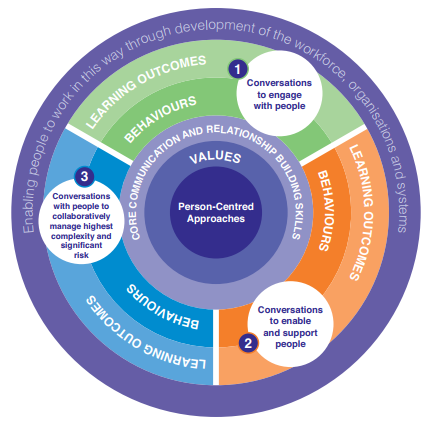A new framework is being launched by Skills for Health, Skills for Care and Health Education England to put people-centred approaches at the heart of the health and social care sector.
The framework builds on a long-running trend to put people and their needs at the heart of health and social care, replacing the traditional top-down approach of yesteryear. Although to many this may seem like old news, there are still a number of health and social care settings who do not fully understand the implications of adopting a person-centred approach.
The framework, according to Skills for Health, was created by drawing on the experience and knowledge of professionals in the sector, and is designed to take person-centred principles and apply them to the current landscape. It is designed to help health and social care workers – or rather their managers, in reality – “put person-centred approaches into practice and to create sustained behavioural change”.
You can read the new framework here. As ever, although the thought must be applauded, drafting a framework and implementing that “sustained behavioural change” is the real challenge, and it isn’t clear from the framework how that is to be achieved in a realistic context. Much of the framework – as is clear in the central diagram – is based around conversations with service users. In health and social care settings where human resources are increasingly stretched, finding the time to have these conversations is easier mandated than done.
A more detailed analysis of the section on training and development will be posted shortly.

